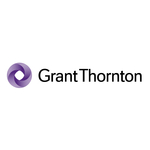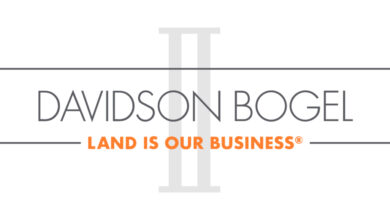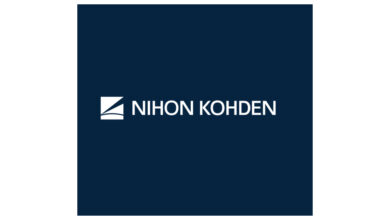Grant Thornton survey: Majority of HR leaders expect employee salary increases of greater than 5%

— 68% said their organization has increased the number of employees eligible to receive a cash bonus
— 60% believe war for talent will last more than a year
— Nearly half (46%) said their organization is looking to reduce office space with new hybrid work arrangements
— Almost a quarter (22%) don’t or don’t know if they have a mature worker retention strategy despite persistent talent retention challenges
CHICAGO–(BUSINESS WIRE)–Grant Thornton LLP, a leading professional services firm, has released a survey that offers insights into how human resources (HR) leaders are responding to the ongoing war for talent. The survey of 551 senior U.S. HR leaders found that 51% said their organization expects average merit increases of more than 5%. Eighty-eight percent said their company expects average merit increases of more than 3%. Meanwhile, 68% of HR leaders said their company has already increased the number of employees eligible to receive a cash bonus.
“A majority of survey respondents believe that the war for talent will last more than a year, and it appears that cash will be a major incentive of choice,” said Tim Glowa, a principal and leader of Grant Thornton’s employee listening and human capital services offerings.
But Glowa added that this is not the only way to win the war for talent. In Grant Thornton’s recent State of Work in America survey, which polled more than 1,500 full-time employees of U.S. companies, 51% of respondents said they would give up a 10%-20% salary increase for more flexibility in when and where they work. And with more adoption of hybrid work arrangements, the HR leaders survey indicated that nearly half (46%) of the leaders polled said their companies are looking into reducing office space and providing further remote or hybrid work opportunities.
“It’s clear that employees value the flexibility they have had since the start of the pandemic,” said Glowa. “However, not all companies will want or be able to offer 100% flexibility. If flexibility is not an option, it is critical to differentiate your value proposition in a meaningful way. Now more than ever, you need an edge over the competition that provides value to your workforce.”
Mike Monahan, Grant Thornton’s national managing principal of People & Community, added that it is important for employers to support their workers’ total wellbeing across multiple dimensions — emotional, physical, career, social and financial.
“Today’s benefits must do more than just complement salaries; they must meet employees where they’re at,” said Monahan. “HR leaders must listen to employees and provide flexible offerings that recognize people have different needs at different times in their lives. Employers that support their workers and their families through life’s various stages will be able to retain top talent and stand out in a tight job market.”
Struggles with retaining new and mature talent
Propelled by the recent financial downturn and uncertainty surrounding the pandemic, employees are now delaying their retirement plans. At the same time, millions of those employees continue to resign each month to find new employment opportunities in a phenomenon that experts have dubbed the “Great Resignation.” In fact, resignation rates are highest among mid-career professionals, and according to the Bureau of Labor Statistics, a record 4.4 million people resigned in September and another 4.2 million in October.
According to Grant Thornton’s survey data, 65% of HR leaders polled said employee retention over the next 12 months is a key concern, while another 67% said they are very concerned about workers who are approaching retirement age and their potential to leave the organization.
“As mature workers consider retirement, and businesses face an increasingly high level of competition for younger talent, it becomes even more crucial to retain your mature workforce,” said Angela Nalwa, an HR Transformation managing director at Grant Thornton. “Companies need mature workers for multiple reasons: Their experience, knowledge and mentoring of younger employees are critical, and there’s not enough talent to replace this segment of the workforce. There needs to be a focus on comprehensive retention strategies for this valuable group.”
Despite the importance of this key demographic, almost a quarter (22%) of HR leaders surveyed said they don’t or don’t know if their organization has an effective retention strategy in place for mature talent. However, 47% of HR leaders said their organization is beginning to adjust its strategy and retention to account for the mature workforce. Overall, 52% of HR leaders said their organization is considering investing in employee retention in the next 12 months, while another 74% said their organization has already developed new retention strategies.
Leaders and employees are far apart on key issues
A vital facet of every impactful retention strategy is how organizations communicate values, ethics and expected conduct behaviors — especially when it comes to diversity, equity and inclusion (DE&I). According to the data, 81% of HR leaders believe they are effective in doing this, however, the Grant Thornton State of Work in America employee survey showed that only 57% believe their senior leadership actively demonstrates their organization’s desired values and behaviors. Interestingly, while 66% of those polled in the HR leaders survey said they leveraged data to develop a DE&I strategy, only 47% are collecting diversity data.
“Companies believe they are communicating their values, culture and commitments to diversity, equity and inclusion, but if the leaders don’t actually lead by example, prioritize those commitments and act consistently, the message will fall flat with employees,” added Nalwa. “A leader’s active and visible role helps communicate the company’s culture and values and sets the tone for forward movement.”
The survey also found a large gap between HR leaders and the workforce regarding how safe it is to speak out in the workplace. While 80% of HR leaders believe their organization provides a safe place for employees to speak out on matters important to them, the 2021 Grant Thornton State of Work in America employee survey found only 60% of employees feel comfortable speaking up. And almost half (45%) of survey respondents said they do not believe their employer understands their needs as an employee.
“Taken together, these two recent surveys show companies have work to do if they want to win the war for talent,” concluded Glowa. “It’s possible to create and maintain the kind of culture employees want, but there’s no time to waste.”
To read more about the 2021 Grant Thornton HR leaders survey, visit www.grantthornton.com/library/survey-reports/tax/2021/hr-reimagines-itself-through-the-pandemic.aspx.
About Grant Thornton LLP
Founded in Chicago in 1924, Grant Thornton LLP (Grant Thornton) is the U.S. member firm of Grant Thornton International Ltd, one of the world’s leading organizations of independent audit, tax and advisory firms. Grant Thornton, which has revenues of $1.97 billion and operates more than 50 offices, works with a broad range of dynamic publicly and privately held companies, government agencies, financial institutions, and civic and religious organizations.
“Grant Thornton” refers to Grant Thornton LLP, the U.S. member firm of Grant Thornton International Ltd (GTIL). GTIL and the member firms are not a worldwide partnership. Services are delivered by the member firms. GTIL and its member firms are not agents of, and do not obligate, one another and are not liable for one another’s acts or omissions. Please see grantthornton.com for further details.
Contacts
Adam Bond
T +1 312 602 8332
E [email protected]
S twitter.com/grantthorntonus
linkd.in/grantthorntonus



